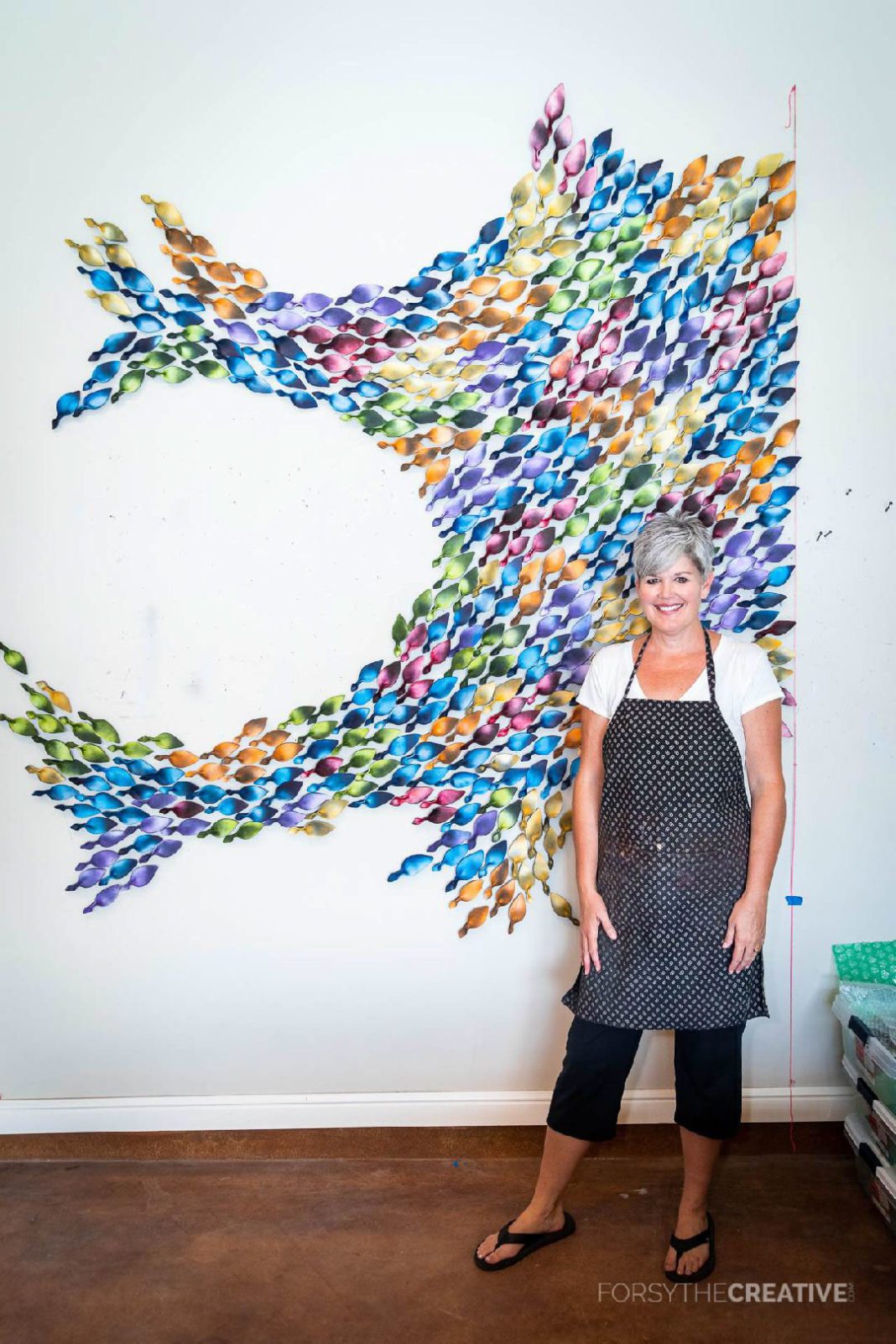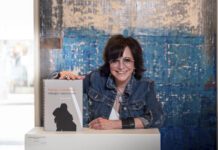Nature has always been an essential part of Whitney Forsyth’s life, from observing insects and animals, to filling her pockets with seeds and rocks, to calming sojourns in the woods. And it is at the heart of her artwork.
Forsyth is a studio artist whose passion for creation began at a young age; she found her focus in a ceramics class in sixth grade. Since then, Forsyth has continued growing her talents and now concentrates on large-scale ceramic sculptures and installations.
While she grew up in Manitou Springs, Colo., Forsyth has Oklahoma ties through her grandparents, whom she visited frequently. She also attended Oklahoma State University and earned her bachelor’s degree in fine arts.
“I have always been a maker, since I was young,” she says. “My mom was an artist and encouraged my artistic abilities. I had a lot of time outside as a child exploring my grandparents’ garden in Oklahoma or the woods in Colorado where I grew up.”
Forsyth went on to New Mexico State University to add a master’s in fine arts to her list of accomplishments. In 1999, she took a position as an associate professor of art at the University of Tulsa, where she taught until 2016.
But her teaching didn’t stop there. More recently, Forsyth opened her own studio.
“In 2017, I transitioned to full-time work as a studio artist,” she confirms. “Currently, I own and teach at Red Heat Ceramic Art Studio.”
The community clay studio located in Tulsa opened in 2021. It is now home to 36 artists and has more than 50 students taking classes regularly. It also allows Forsyth to continue sharing what she loves with others and introducing people to clay for the first time.
“By establishing a community clay studio that encourages all generations to work in the same space together,” she says, “the collaboration and discovery are contagious!”
Nature is an integral part of Forsyth’s artwork, yes, but the work also tells the story of her life – where she’s been and where she’s going. The ceramics creator says some of her favorite pieces are the circular arrangements of objects with intricate designs and repetitive patterns called mandalas.
“I love the mandalas,” she says. “They encourage viewers to sit, look and listen. I also love the momentum of the Windward series … the large forms that are created with hundreds of small pieces assembled together.”
Visit whitneyforsyth.com to learn more about the artist and see her work.
To Find Forsyth
You can find Forsyth’s work displayed in art centers, galleries and museums across the U.S. and private and public art collections. Her most recent installation is a large wall piece to commemorate the 100th anniversary of Holland Hall School in Tulsa. She’s also working on a display for Saint Francis Hospital that will be complete this summer.
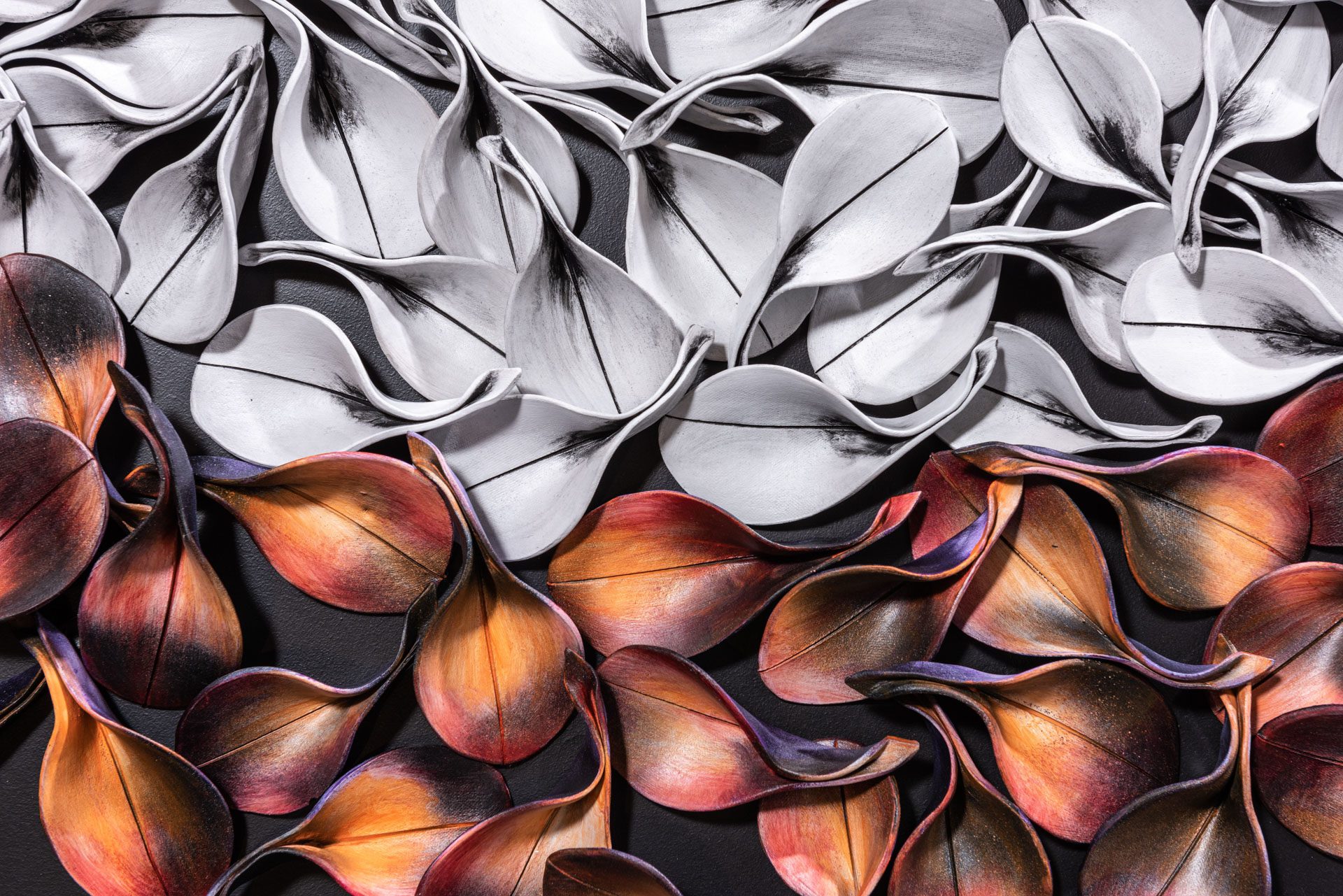
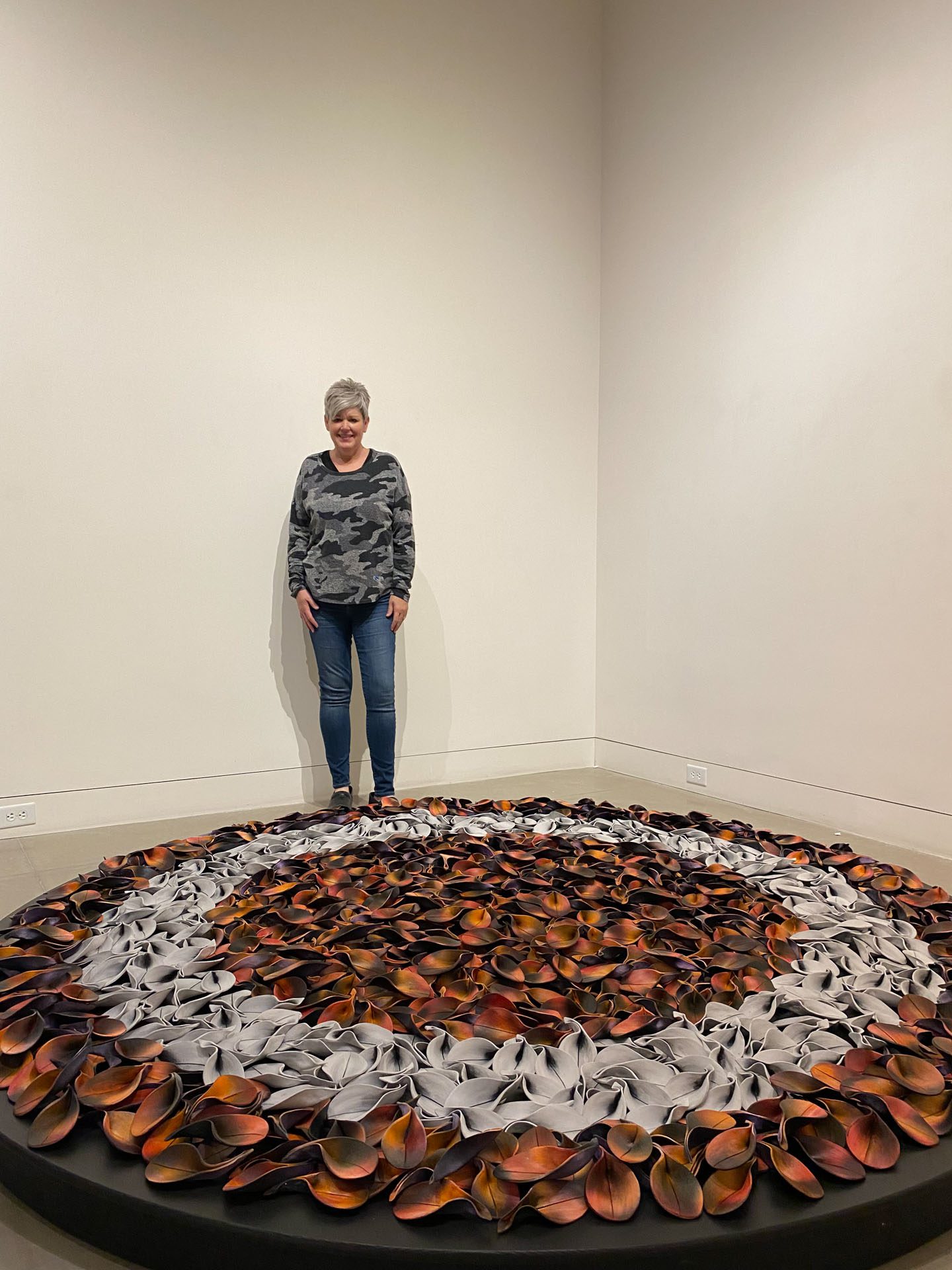
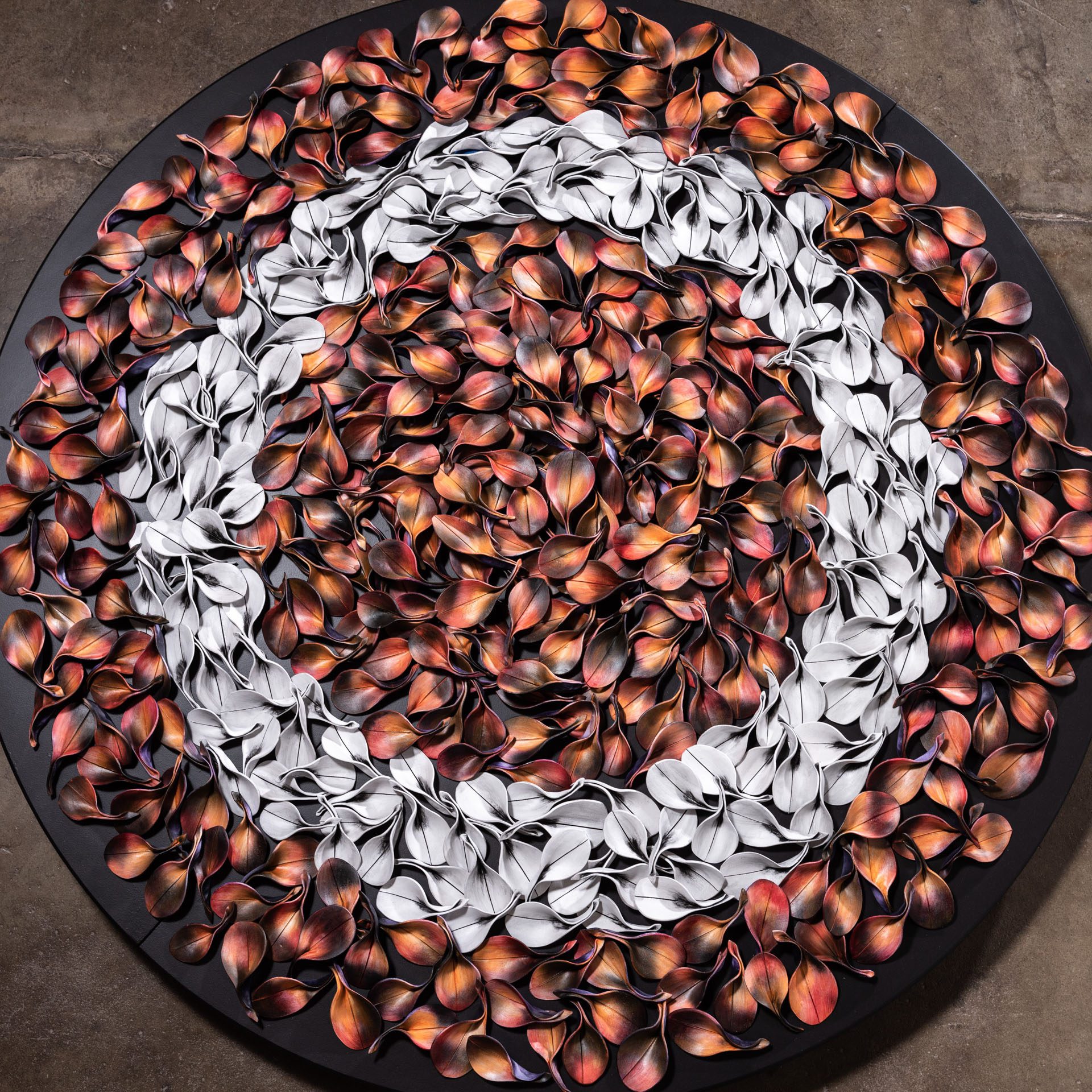
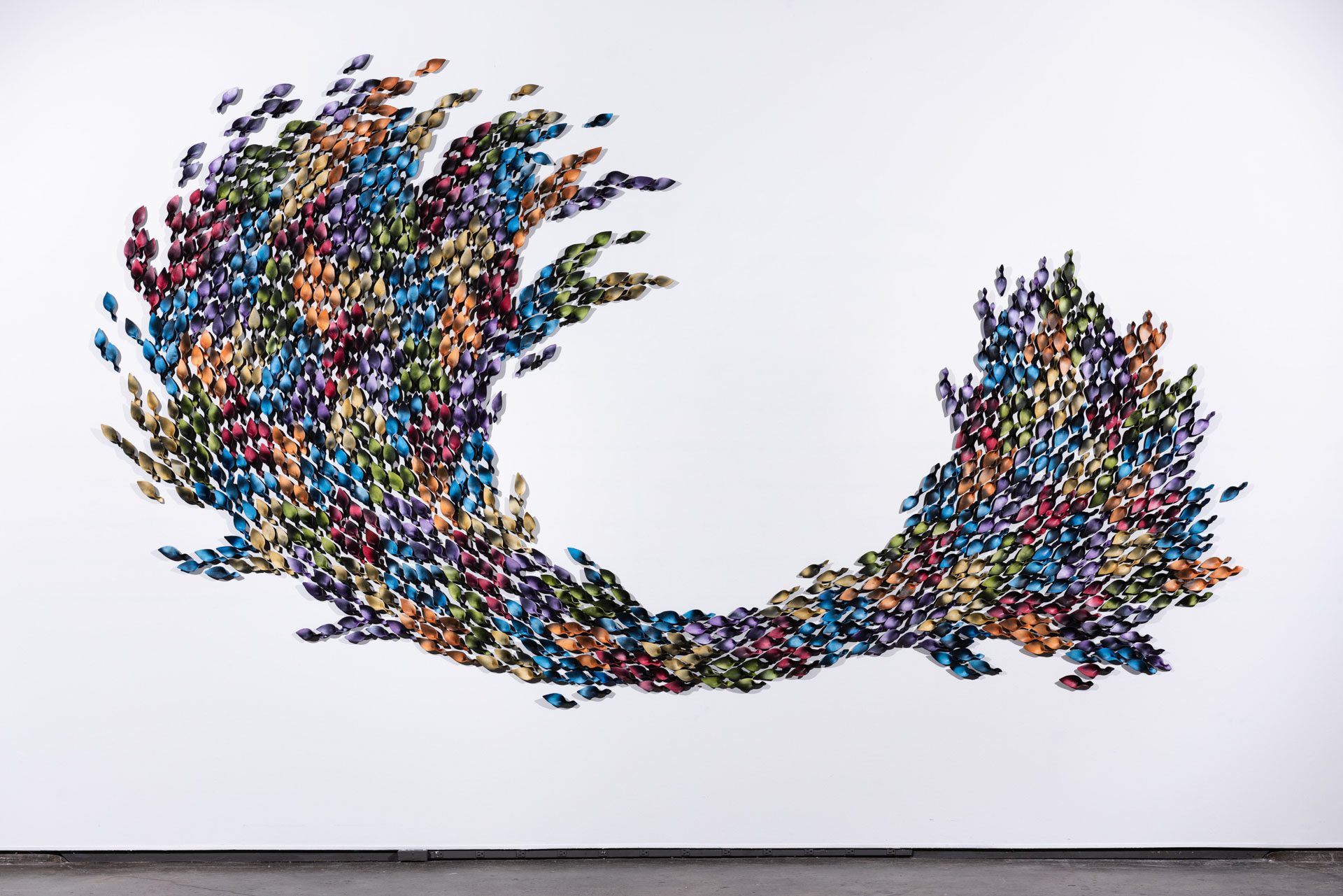
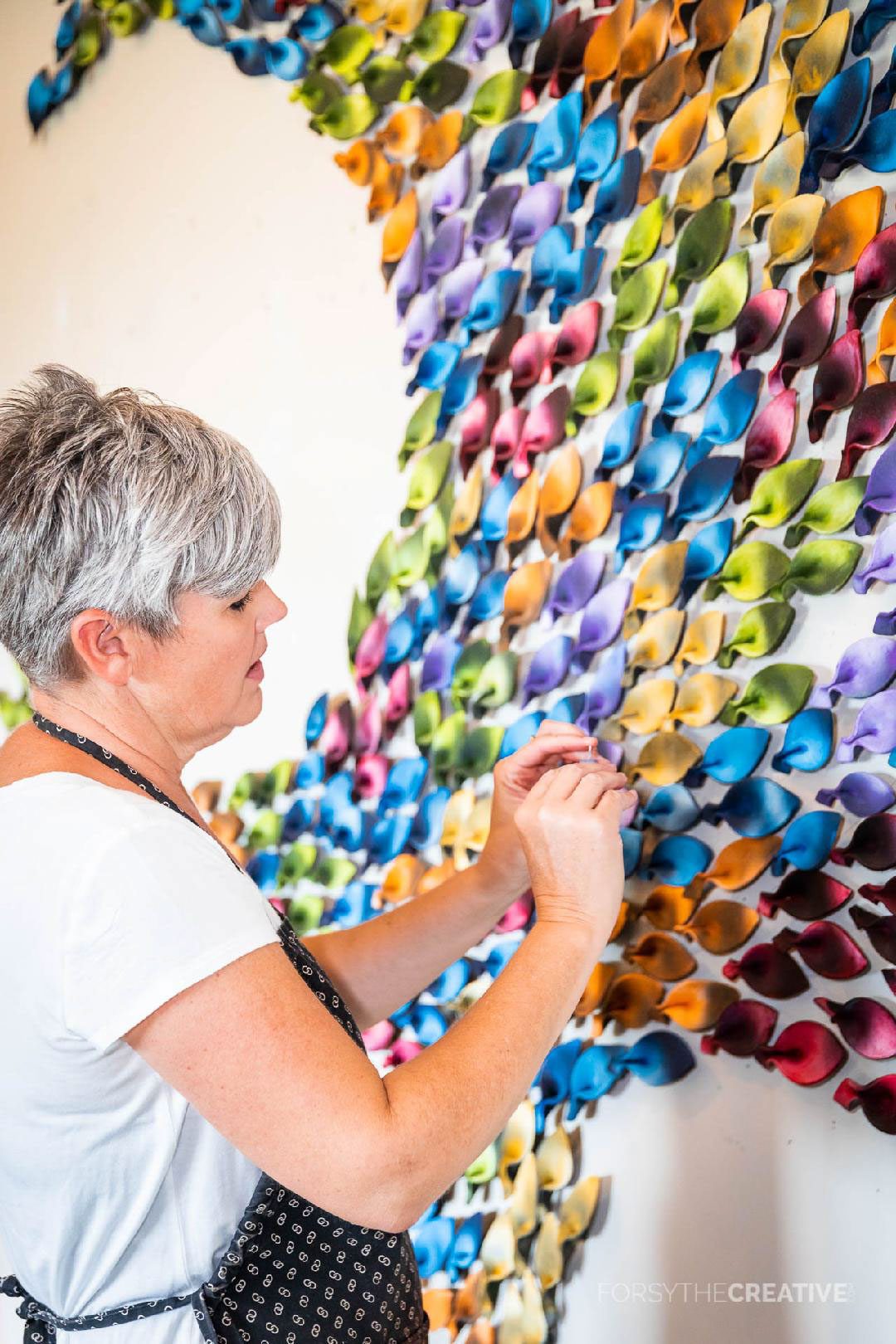
Photos courtesy Forsyth






















